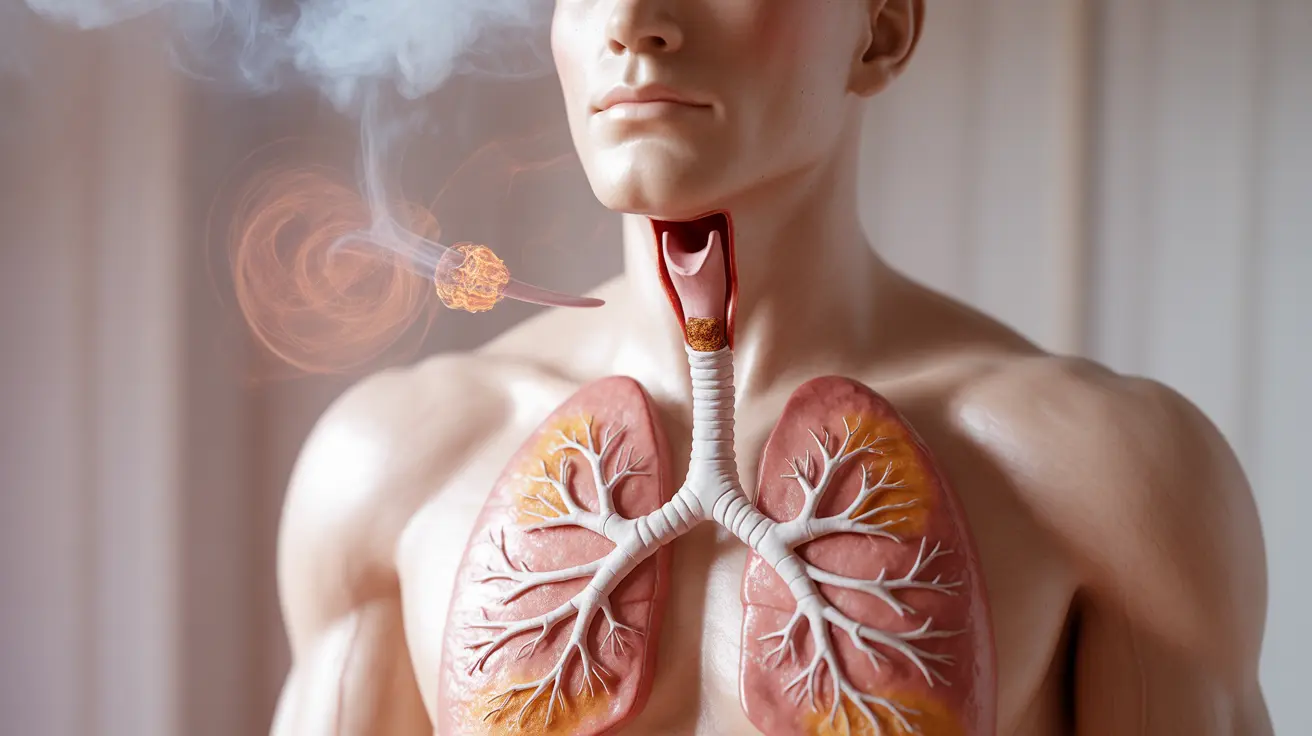Many people view cigars as a more sophisticated or less harmful alternative to cigarettes, but this perception doesn't align with medical evidence. Understanding the health implications of cigar smoking is crucial for making informed decisions about tobacco use and protecting your well-being.
Whether you're a regular cigar smoker, an occasional enthusiast, or someone curious about the health effects, it's essential to know the real risks associated with cigar consumption. Let's explore the comprehensive health impacts of cigar smoking and why medical experts consistently warn against this practice.
Health Risks of Cigar Smoking
Cigar smoking poses significant health risks, even for those who don't inhale directly. The tobacco in cigars contains numerous harmful chemicals and carcinogens that can affect various parts of the body, from the mouth and throat to the lungs and heart.
Toxic Substances in Cigars
Cigars contain many of the same toxic substances as cigarettes, including:
- Nicotine
- Tar
- Carbon monoxide
- Nitrosamines
- Heavy metals
- Various carcinogens
Immediate Health Effects
Even occasional cigar smoking can lead to immediate health concerns:
- Bad breath
- Stained teeth
- Reduced sense of taste
- Mouth and throat irritation
- Increased heart rate
- Elevated blood pressure
Cancer Risks Associated with Cigar Use
Cigar smoking significantly increases the risk of developing various types of cancer. The most common cancer risks include:
Oral and Throat Cancers
The mouth and throat are directly exposed to cigar smoke, leading to an increased risk of:
- Lip cancer
- Tongue cancer
- Throat cancer
- Esophageal cancer
Lung and Other Cancers
Even without inhaling, cigar smokers face elevated risks of:
- Lung cancer
- Pancreatic cancer
- Bladder cancer
- Laryngeal cancer
Addiction and Nicotine Exposure
Despite common misconceptions, cigars can be highly addictive. A single large cigar can contain as much nicotine as an entire pack of cigarettes. Even without inhaling, nicotine can be absorbed through the lining of the mouth, leading to dependency.
Impact on Heart and Lung Health
Regular cigar smoking can significantly impact cardiovascular and respiratory health through:
- Increased risk of coronary heart disease
- Higher likelihood of developing COPD
- Reduced lung function
- Greater risk of peripheral artery disease
- Increased chance of aortic aneurysm
Secondhand Smoke Concerns
Cigar smoke affects not only the smoker but also those nearby. Secondhand cigar smoke contains higher concentrations of toxic compounds compared to cigarette smoke, posing serious health risks to non-smokers, including children and pregnant women.
Frequently Asked Questions
Is smoking cigars bad for your health compared to cigarettes?
Yes, smoking cigars is similarly harmful to cigarettes. While some cigar smokers don't inhale directly, they still absorb toxic substances through their mouth and throat. Cigars actually contain more tobacco than cigarettes, potentially exposing users to higher levels of harmful compounds.
What types of cancer are caused by cigar smoking?
Cigar smoking can cause multiple types of cancer, including oral, throat, esophageal, and lung cancer. It also increases the risk of pancreatic, bladder, and laryngeal cancer.
Can you get nicotine addiction from smoking cigars even if you don't inhale?
Yes, nicotine addiction can develop even without inhaling cigar smoke. The nicotine is absorbed through the oral mucosa, and cigars contain significantly more nicotine than cigarettes.
What are the health risks of secondhand cigar smoke exposure?
Secondhand cigar smoke exposure can lead to respiratory problems, increased cancer risk, and cardiovascular issues. Children and pregnant women are particularly vulnerable to these effects.
How does smoking cigars affect the risk of heart and lung diseases?
Cigar smoking increases the risk of various cardiovascular and respiratory conditions, including coronary heart disease, COPD, reduced lung function, and peripheral artery disease.
Remember, there is no safe level of tobacco use, including cigars. If you're considering quitting, speak with a healthcare provider about effective cessation strategies and support options.




